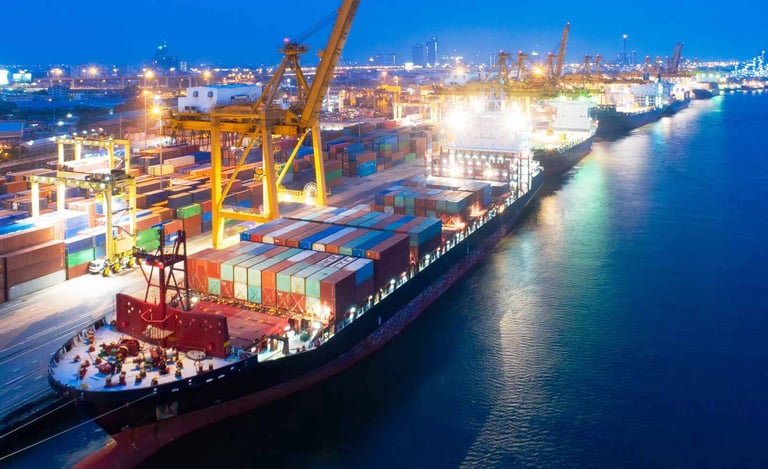Beira Port Set for 34% Cargo Surge by 2025, Bolstering Regional Trade
Mozambique’s Beira port is projected to see a 34% rise in containerized cargo by 2025, handling around 600 ships annually, including large PANAMAX vessels. Enhanced infrastructure and safety measures allow the river port to accommodate ships with over 12-meter drafts, as shown in a successful November 2024 docking. A key hub for Zimbabwe, Malawi, Zambia, Botswana, and the DRC, Beira’s growth highlights its role in boosting regional trade. make it shorter
RAILWAY TRANSPORTATIONLOGISTICS
Teresa Ndlovu
5/7/20251 min read


The port of Beira in Mozambique’s Sofala province is projected to experience a 34% surge in containerized cargo volume by the end of 2025, potentially handling around 600 cargo ships annually. This forecast was announced by Lino Nhacumba, Director of Maritime Services at the Mozambique Railway Company (CFM) in Sofala, during a statement on May 3, 2025. The port is poised to accommodate large vessels, including PANAMAX container ships, which exceed 300 meters in length and are among the world’s largest.
Nhacumba highlighted Beira’s enhanced safety and operational capabilities, noting that the port, despite being a river port, can now handle ships with drafts exceeding 12 meters. He cited a successful docking of a 300-meter container ship in November 2024 as evidence of the port’s modern infrastructure and improved navigational support. These upgrades include advanced equipment and systems to ensure safe docking and undocking, even for massive vessels.
Strategically located, Beira serves as a critical maritime hub for Southern Africa, facilitating transit trade for landlocked nations such as Zimbabwe, Malawi, Zambia, Botswana, and the Democratic Republic of Congo. The anticipated cargo volume growth reflects increasing regional trade and Beira’s rising prominence as a logistics gateway. Investments in port infrastructure, including dredging and modernization efforts, have bolstered its capacity to handle larger ships and higher throughput, aligning with Mozambique’s broader economic ambitions to leverage its coastal position for regional connectivity and trade expansion.
Future
© 2025. All rights reserved.


